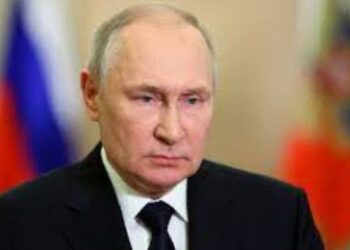
The eastern Libyan National Army (LNA) forces of Khalifa Haftar, a former officer in Gaddafi’s army said on Monday that 19 of its soldiers had been killed as battle for Tripoli intensified.
In recent days, LNA forces closed in on the internationally recognised government in Tripoli.
Eastern Libyan forces sought to reach the centre of Tripoli after their easy advance through desert hit a trickier urban phase, with deaths and displacements mounting and the West aghast at the threat to its peace plan.
Renewed civil war in Libya splintered into areas of factional control since the 2011 overthrow of Muammar Gaddafi, threatens to disrupt oil and gas supplies, trigger more migration to Europe, and allow Islamist militants to exploit the chaos.
The United Nations said 2,800 people were displaced by clashes and many more could flee, though some were trapped.
The LNA had made air strikes on the south of the city as it seeks to advance into the centre from the disused airport.
But the Tripoli government of Prime Minister Fayez al-Serraj, which reported 11 deaths without specifying on which side, had armed groups arriving from nearby Misrata to block the LNA.
Al-Serraj, 59, who comes from a wealthy business family, has run the Tripoli government since 2016 as part of UN-brokered deal boycotted by Haftar.
The LNA, allied with a parallel eastern administration based in Benghazi, took the oil-rich south of Libya earlier this year before its surprisingly fast push toward the coastal capital.
While that advance was straightforward through mostly sparsely populated areas, taking Tripoli is a far bigger challenge.
The violence has thrown into doubt a UN plan for an April 14 to16 conference to plan elections as a way out of the anarchy since the Western-backed toppling of Gaddafi eight years ago.
U.S. Secretary of State Mike Pompeo made the latest international appeal for talks to end the fighting.
“We have made clear that we oppose the military offensive by Khalifa Haftar’s forces and urge the immediate halt to these military operations against the Libyan capital,” Haftar said.
A contingent of U.S. forces was earlier evacuated.
The UN mission to Libya called on Sunday for a truce for two hours in southern Tripoli to evacuate civilians and wounded, but it did not appear to have been heeded.
Haftar casts himself as a foe of extremism but is viewed by opponents as a new dictator in the mould of Gaddafi, whose 40 years rule saw torture, disappearances and assassinations.
Haftar enjoys the backing of Egypt and the United Arab Emirates, which see him as a bulwark against Islamists and have supported him militarily, according to UN reports.
Forces with the Tripoli government have announced an operation to defence the capital called “Volcano of Anger’’.
Allied groups from Misrata down the coast have been moving pickup trucks fitted with machine guns into Tripoli.
The LNA says it has 85,000 men but this includes soldiers paid by the central government that it hopes to inherit.
Its elite force, Saiqa (Lightning), numbers some 3,500, while Haftar’s sons also have well-equipped troops, LNA sources say.
Since NATO-backed rebels ousted Gaddafi, Libya has been a transit point for hundreds of thousands of migrants trekking across the Sahara in hope of reaching Europe across the sea.










